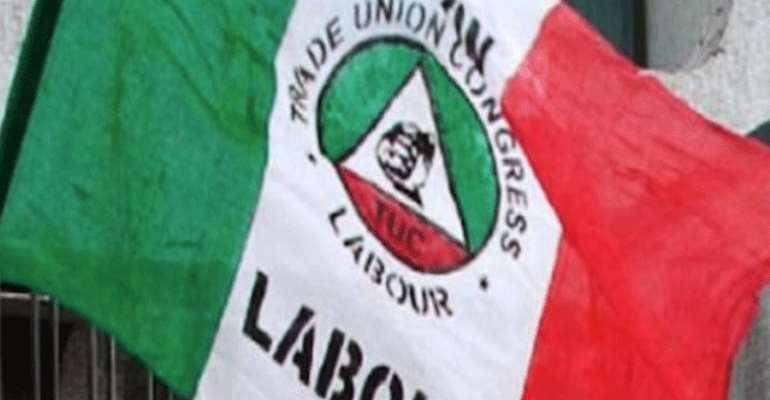Petrol pump price: N10 reduction, not enough —Labour

Organised labour on Monday reacted to the reduction of pump price of Premium Motor Spirit (petrol) from N97 to N87 announced by the Federal Government on Sunday, submitting that the reduction was inadequate.
The Nigeria Labour Congress (NLC) said that the reduction of petroleum pump price by just 10.3 per cent, compared to 33 per cent price reduction in most other countries, 'is not sufficiently deep enough.'
The Trade Union Congress (TUC), though commended what it termed 'government's sensitivity to the plight of millions of impecunious Nigerians', added that 'the N10 reduction certainly has less than significant effect on costs of transportation, goods and services.'
Meanwhile, both the Manufacturers Association of Nigeria (MAN) and the Independent Petroleum Marketers Association of Nigeria (IPMAN) have lauded the government for reducing the price of petrol.
In its reaction to the slash in the pump price of petrol, NLC, in a statement signed by its General Secretary, Comrade Peter Ozo-Eson, cited the example of the United States of America which reduced the pump price by 33 per cent, the NLC said the N10 price slash translates to 10.3 per cent reduction compared to 33 per cent price reduction in most countries.
The NLC requested the government to effect a price reduction that would reflect the sustained price slump of crude oil in the international market in order for Nigerians to benefit from the development.
The statement pointed out that prior to this price reduction, government had substantially devalued the Naira, thus ensuring that the full benefits of falling crude price did not get to Nigerians.
Commending the development, the Congress said: 'We commend the government for listening to our advice. However, the price reduction we envisaged is the one that will operate within the institutional framework of PPPRA.
'The logic of our reasoning is hinged on the premise that only the PPPRA is charged with the statutory responsibility of determining petroleum product prices based on a relatively acceptable template.
'Accordingly, it is the PPPRA (on whose board we have NLC, TUC, NUPENG, PENGASSAN, NURTW) relying on the existing price template that could arrive at a fair and just price reduction. In other words, the reduction by the government, as welcome as it is, is by fiat.
'It is unfortunate that the PPPRA Board has been sidelined for so long. We demand that its board be constituted immediately to enable it discharge its statutory functions.
'However, beyond the issue of price reduction of PMS, the regulatory agencies in the downstream sector of the oil industry need to protect Nigerians against monopolistic exploitation.
'We make bold to refer to the unacceptable price manipulation by monopolies in the oil sector where prices have remained unreasonably high for diesel, the price of which is deregulated.
'Given the realities of the international oil market today, there is no reason for maintaining the price of diesel at N160 per litre.
'The regulatory agencies are called upon to break this stranglehold on consumers.
'Finally, we wish to appeal to transporters and transport operators alike to ensure that the benefits of this price reduction get to commuters.'
The TUC, in a statement made available to the Nigerian Tribune on Monday noted that selling PMS at N87 per litre would still 'destabilise and bore holes in the ever-shrinking pockets of the Nigerian masses.'
It said Nigerians deserved an even greater slash in the price of fuel, adding that all appropriate measures must be taken to strengthen the purchasing power of the common man.
'This brings us to the question of the nation's reliance on a mono-economy. Surely the time to effectively diversify our economy is now. As an organisation abreast with the numerous resources nature has bequeathed our nation, we are pained and distraught over the myriad of avoidable challenges facing the nation.
'It is especially bewildering that Nigeria, Africa's top oil producer, relies on importation for most of its fuel needs because the country's refineries are in poor state, whereas the reverse is the case in other oil producing countries. Our present plight could have been avoided or substantially ameliorated if the three new refineries that the government has since proposed to build to complement the epileptic capacity of the existing ones had been completed before now,' the statement read in part.
TUC further decried the continued delay in the Petroleum Industry Bill which could have assisted in stabilising and invigorating the sector, but has remained on the shelves of the national legislature for four years due to stiff opposition founded on personal interest.
'Surely the executive and legislative arms of government know better than to let this unwholesome situation continue,' the congress stated. Agency report
